Homes are being lost to the sea in England. A map reveals the villages that could be next
Those living in homes at risk of falling in the ocean have spoken of what it’s like to live on the edge
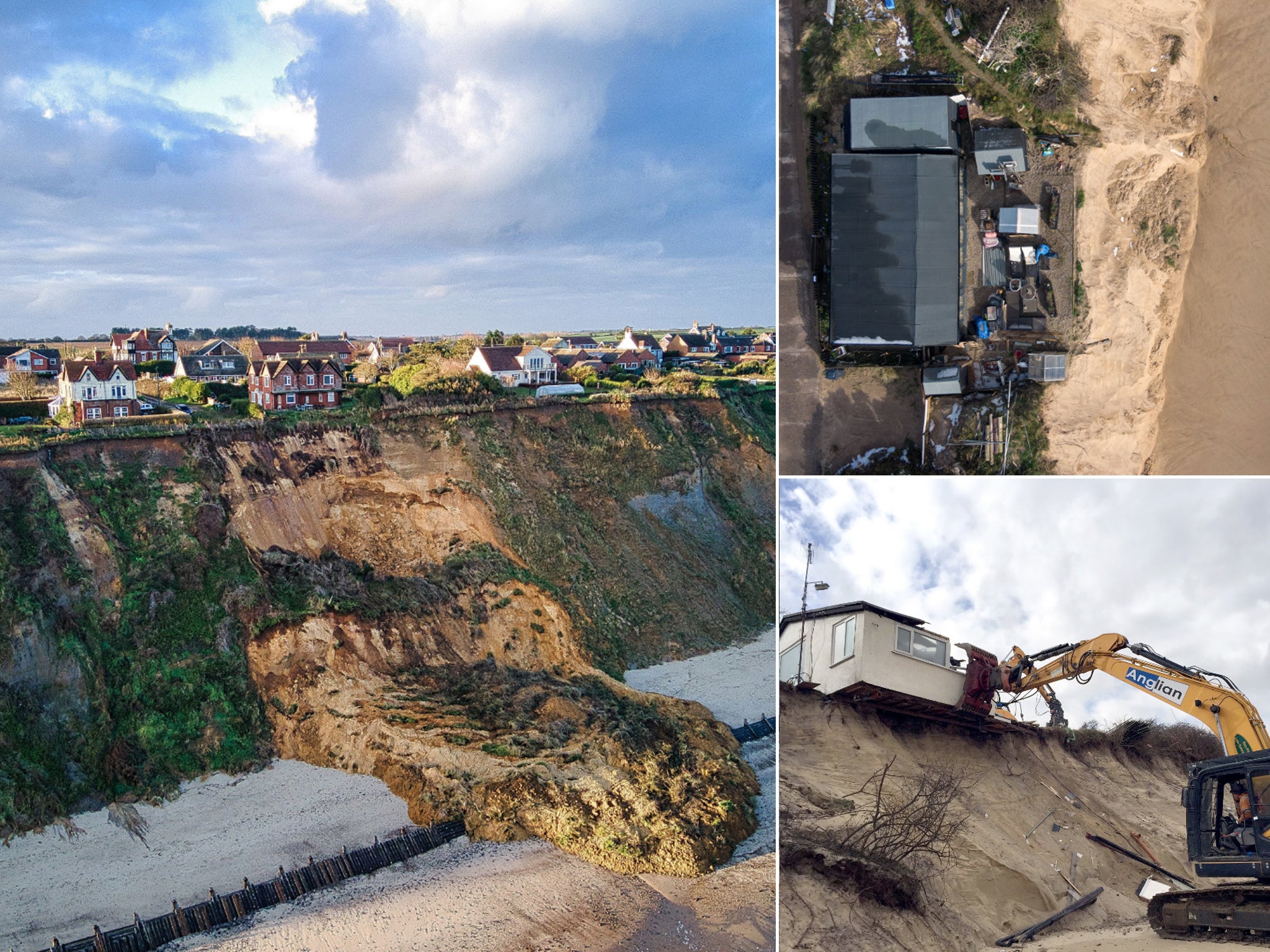
Your support helps us to tell the story
From reproductive rights to climate change to Big Tech, The Independent is on the ground when the story is developing. Whether it's investigating the financials of Elon Musk's pro-Trump PAC or producing our latest documentary, 'The A Word', which shines a light on the American women fighting for reproductive rights, we know how important it is to parse out the facts from the messaging.
At such a critical moment in US history, we need reporters on the ground. Your donation allows us to keep sending journalists to speak to both sides of the story.
The Independent is trusted by Americans across the entire political spectrum. And unlike many other quality news outlets, we choose not to lock Americans out of our reporting and analysis with paywalls. We believe quality journalism should be available to everyone, paid for by those who can afford it.
Your support makes all the difference.Almost £600 million worth of homes are at risk of falling into the sea, campaigners have warned as a map reveals those most in danger.
A total of 21 villages and hamlets have been named as at risk in England and those living close to the coasts said it is taken a huge toll on their mental health.
Climate action group One Home used data from the Environment Agency’s National Coastal Erosion Risk Mapping (NCERM) dataset at 5% confidence, indicating a less than 5% chance of the coast being eroded further inland than the estimate.
The value of property damages, on the land that could be hit by coastal erosion by 2100, was estimated at £584 million using average local authority values or site-specific values from Rightmove, One Home said.
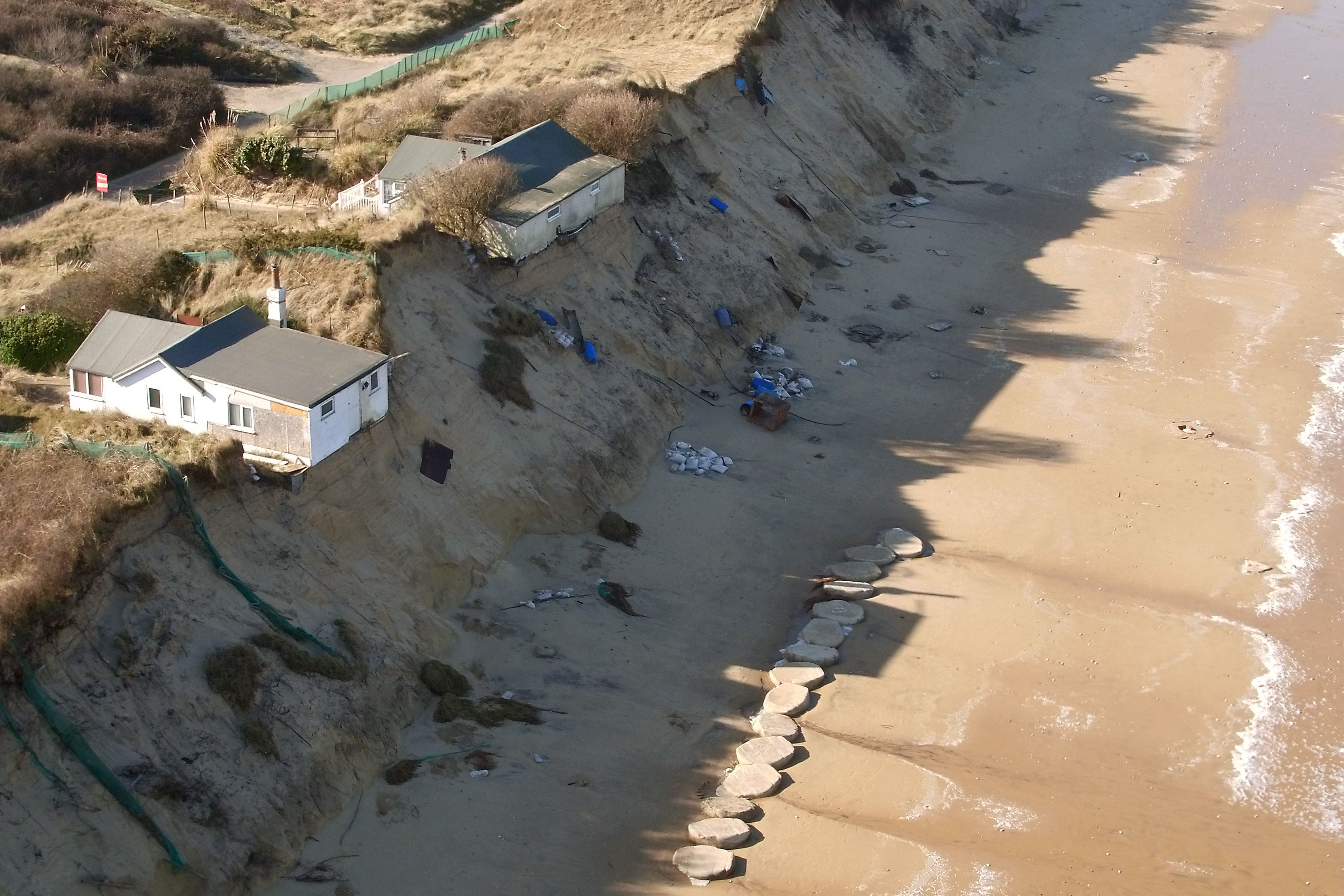
The group has compiled a map highlighting what shoreline management plans are in place in different areas of coast, and what the level of protection is.
The coastal communities identified by One Home that could lose the most homes are in Cornwall, Cumbria, Dorset, East Yorkshire, Essex, the Isle of Wight, Kent, Northumberland, Norfolk and Sussex.
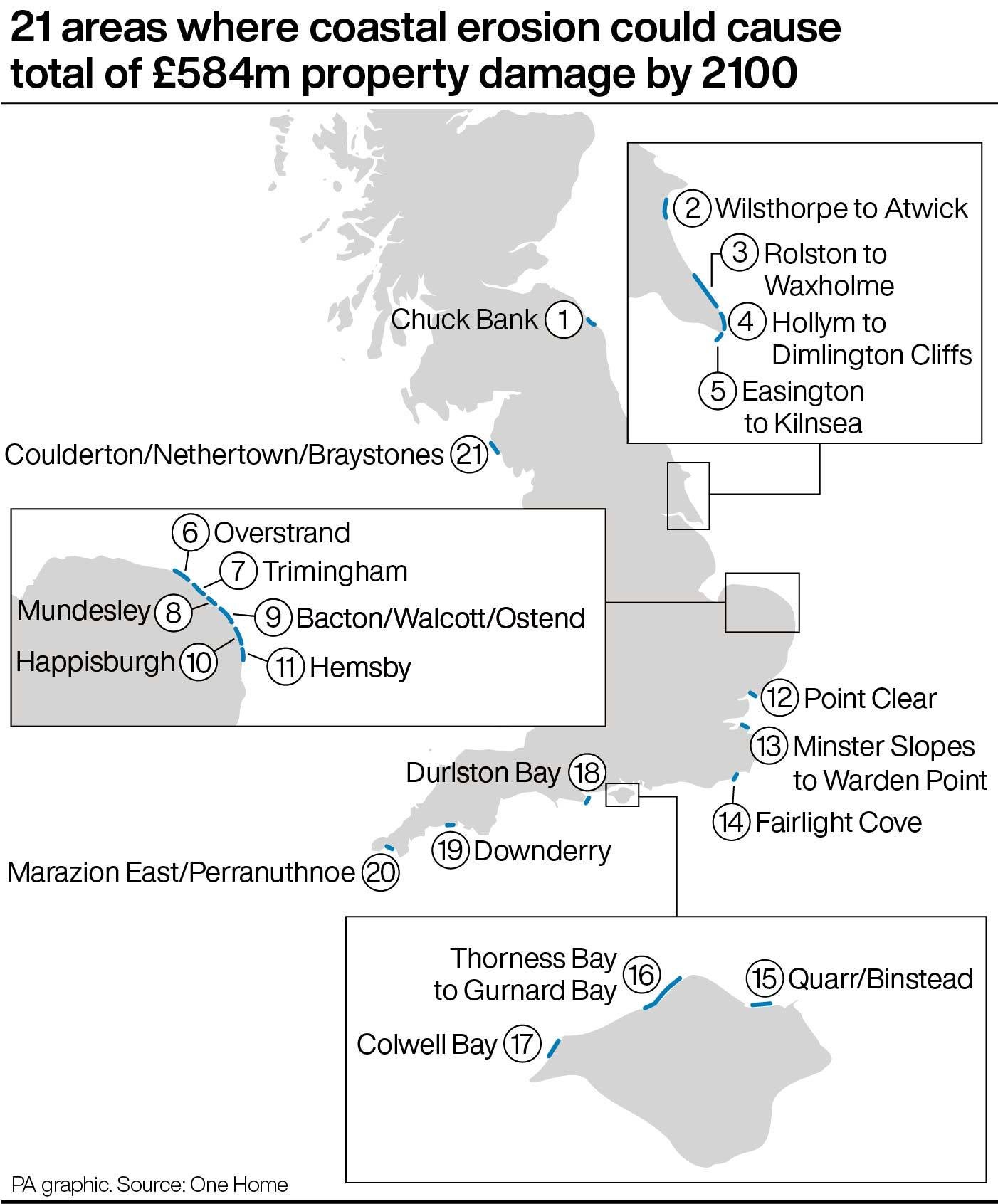
Angela Terry, chief executive of One Home, said: “Sea levels are rising as global temperatures soar and so larger waves batter our coast during severe storms.
“These irreversible changes mean some cliff faces are crumbling fast.
“We can’t turn the tide or build a wall around the entire coast so we urgently need to help seaside communities to prepare for the damage that will come.
“Shoreline management plans are publicly available documents but most people are unaware of their existence.
“Many homeowners don’t know their properties are at risk or that decisions have been made about whether to protect them or not.
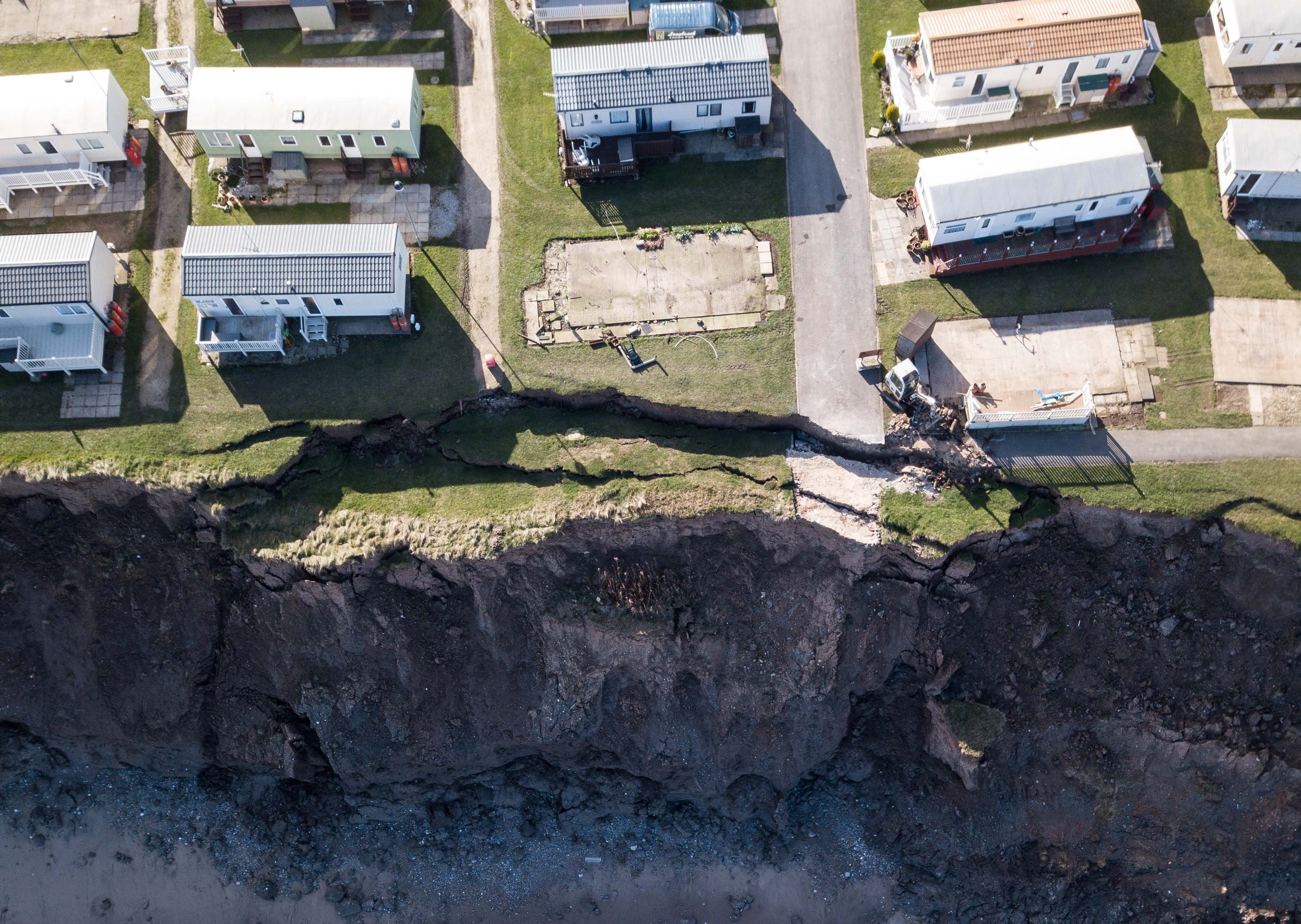
She added: “SMPs are not statutory, so new developments can continue.
“Funding is not guaranteed so even where communities have been chosen to be saved, the money might not be there, giving people false hope that their home will be protected long-term.
“One Home’s aim with this map is to explain SMPs in an easy-to-digest way so that homeowners are sufficiently informed to make timely decisions about their properties to reduce future harm.
“Currently, for those homes at risk, there is no compensation scheme available.
“Owners might be asked to pay to demolish their homes while still paying their mortgage.”
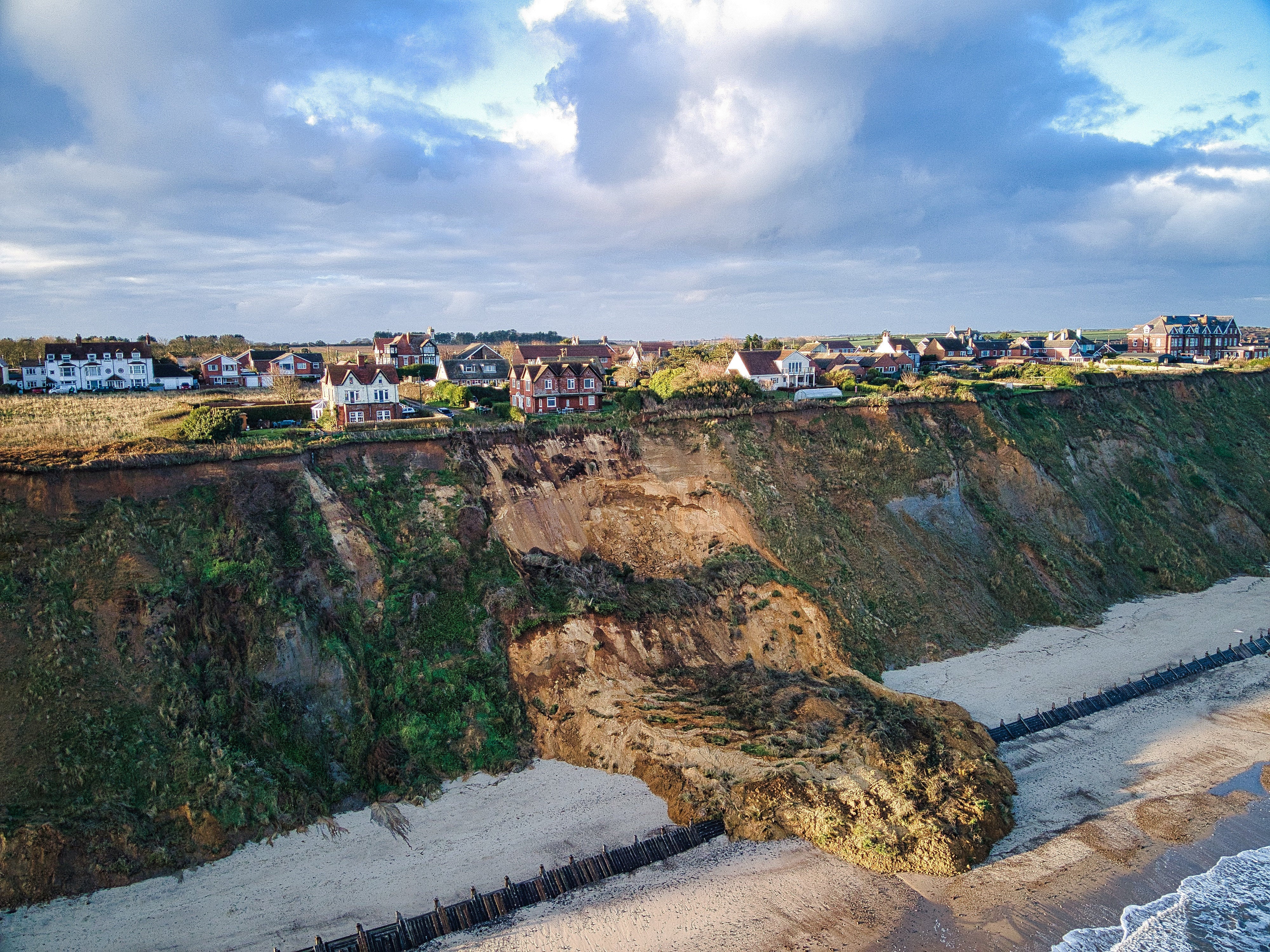
More than a third of England’s coastline has a designation of “no active intervention”, One Home said, meaning that nothing will be done.
The other two levels of protection in SMPs are “hold the line”, meaning that defences will be maintained and upgraded if funding is found, and “managed realignment” which involves moving or allowing the shoreline to retreat in a managed way.
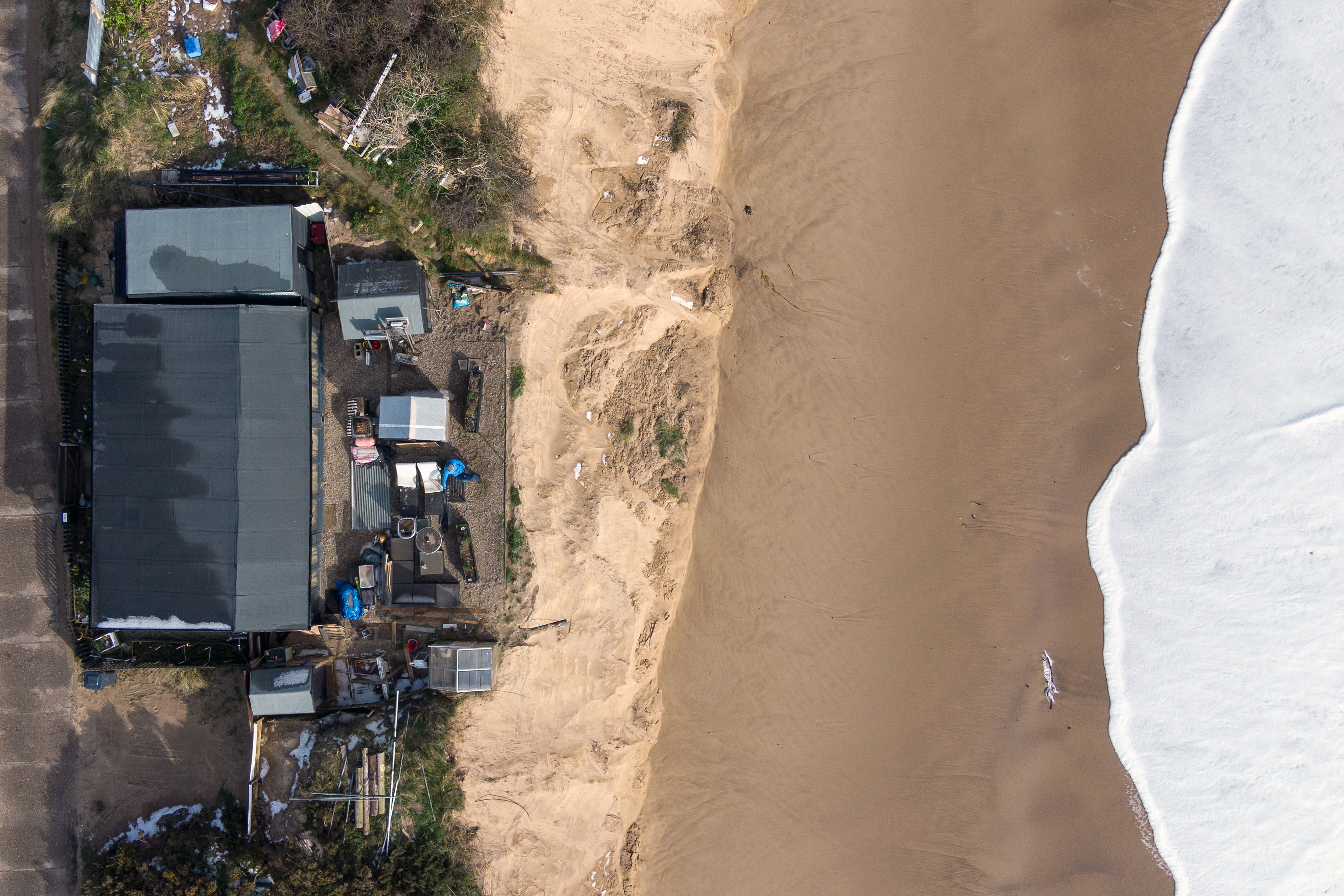
Threat of losing homes to sea taking ‘huge toll on mental health’ of villagers
A campaigner in a village where dozens of homes are at risk of going into the sea said it has taken a huge toll on people’s mental health.
Ian Brennan, chairman of the Save Hemsby Coastline charity in Norfolk, said more than 90 homes in Hemsby are at risk of going into the sea in the next 25 years if nothing is done.
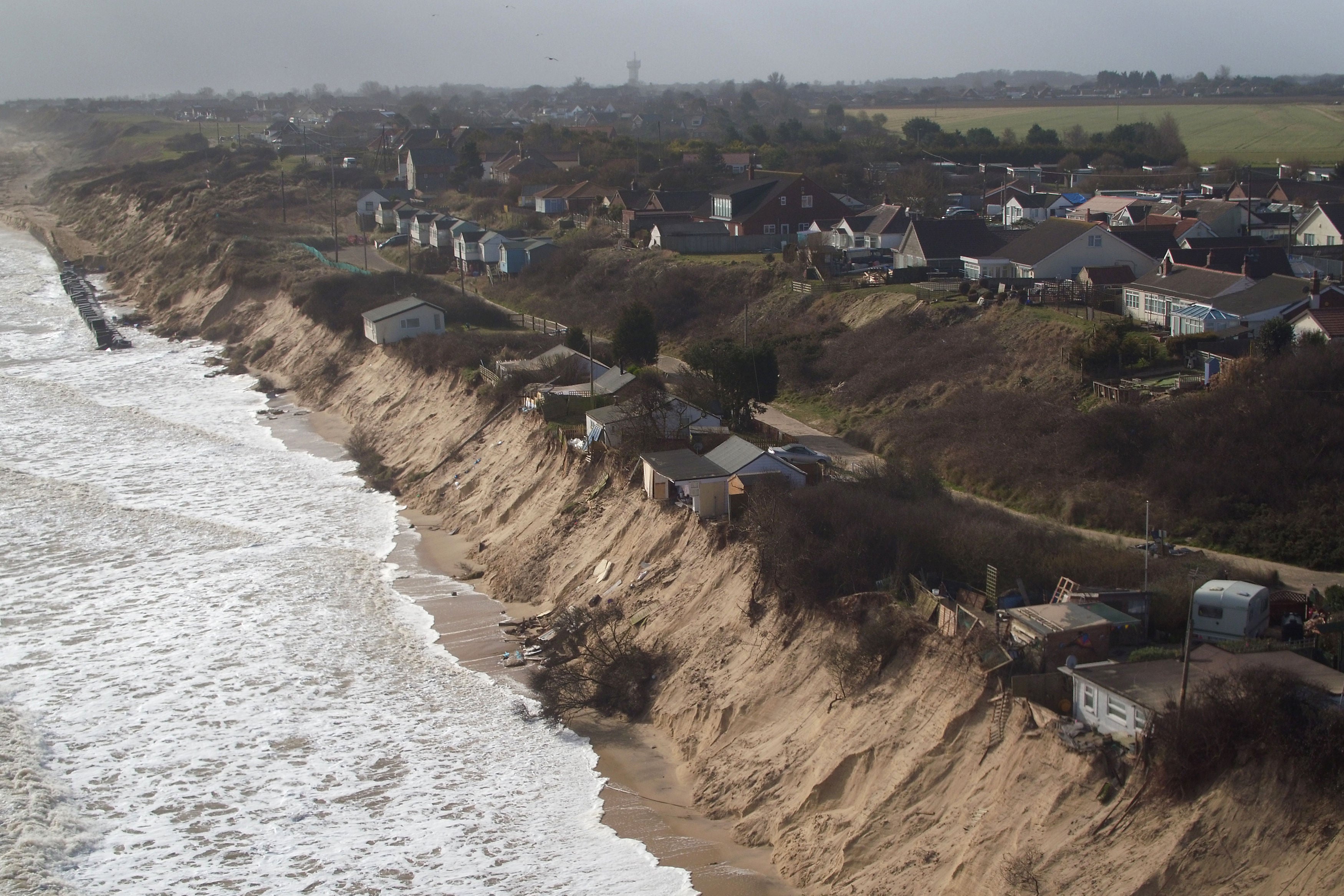
Retired telecoms manager Mr Brennan, 63, said that Save Hemsby Coastline was formed 10 years ago when several homes were lost during a storm surge, and it is pressing for sea defences.
“People here are very nervous,” he said.
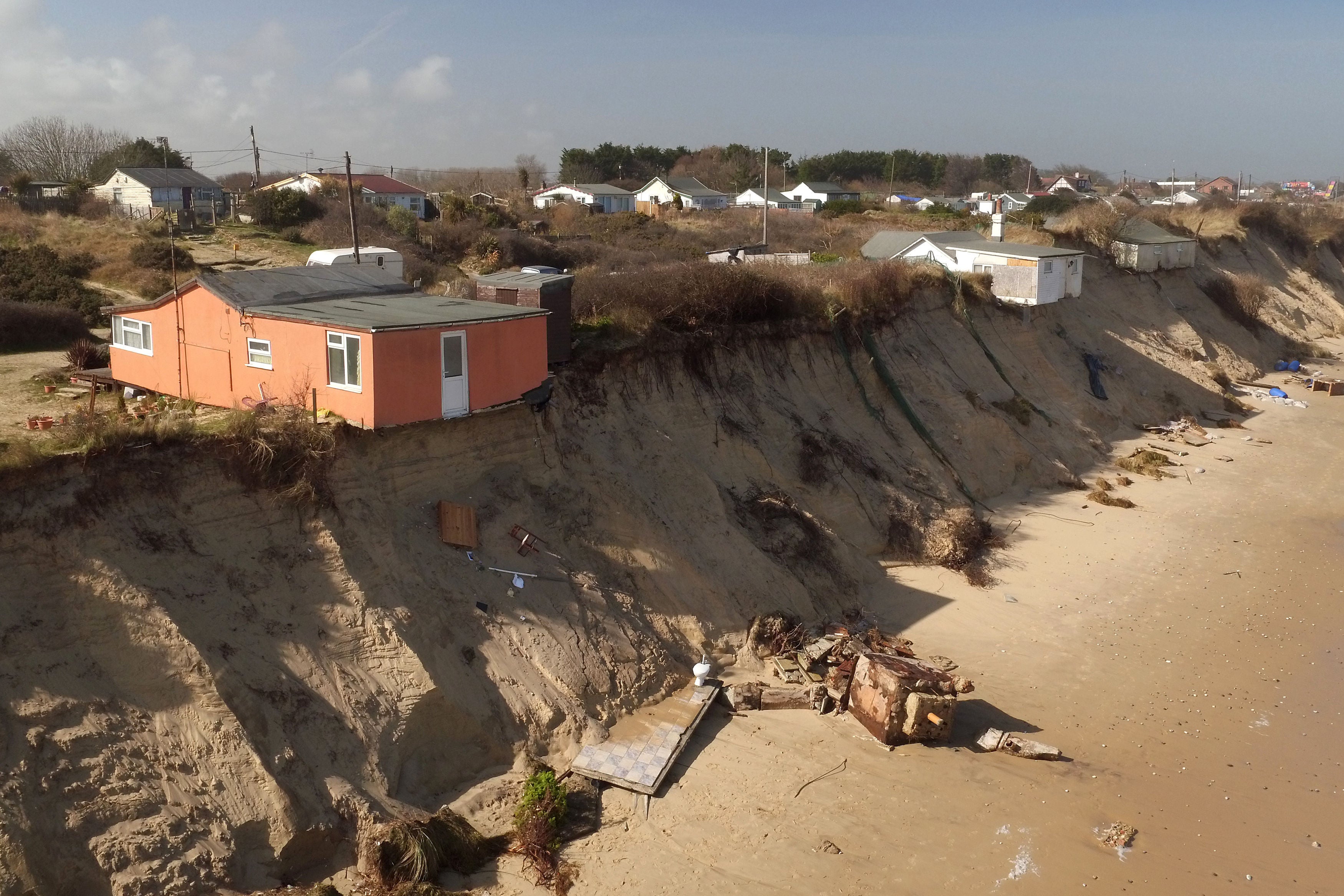
“Every time there is a storm those who live within sight and sound of the sea fear it will be the one which means they lose their home.
“It takes a huge toll on their mental health.”
He said that 1.1 miles (1.9km) of coast is under threat at Hemsby and the group is seeking permission and funding for rock berm sea defences.
“Essentially, all we really have is a large sandcastle protecting us,” said Mr Brennan.
“It’s sand that’s blown up, captured by the marram grass, and that’s all there is protecting the front of the village.
“There used to be three rows of marrams and now you’re down to the very last one and then you’re into the village proper.”
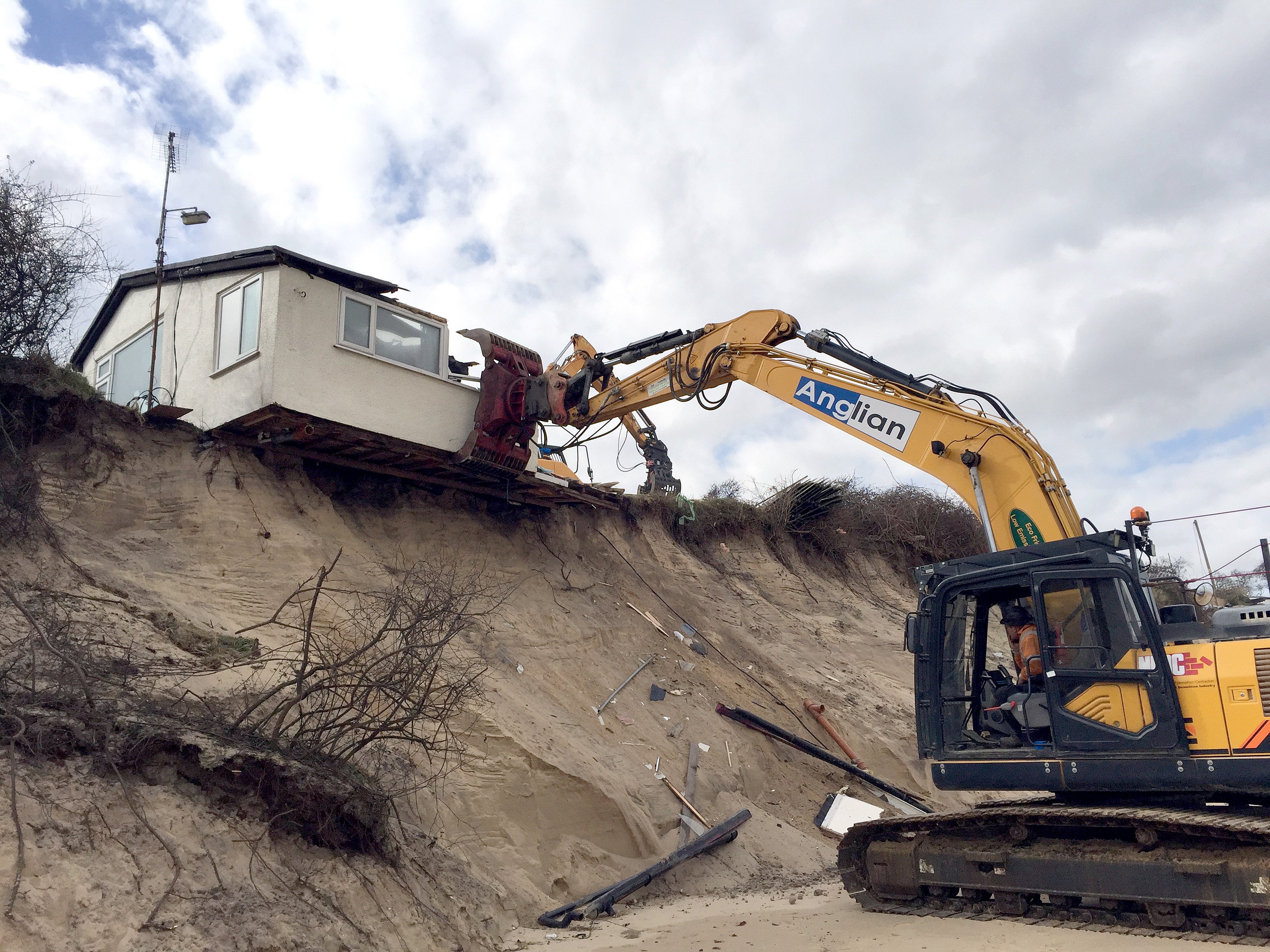
He said an initial lowest estimate for the cost of a rock berm was given as £5 million, but costs are increasing.
“My biggest fear is we’re going to reach a point where the powers that be say ‘yes you’ve got planning permission, go for it if you can raise the money’ and we’re then asking for £30 million or something to do a medium-sized berm that isn’t really going to be what we need,” he said.
“We’re not doing it because we believe it’s going to make Hemsby permanently safe.
“But it will buy time to allow people to adapt their lives.
“Lots of people say ‘why are you bothering, you know you can’t stop the sea’.
“But adaptation is possible, and it’s about spending and political will.”
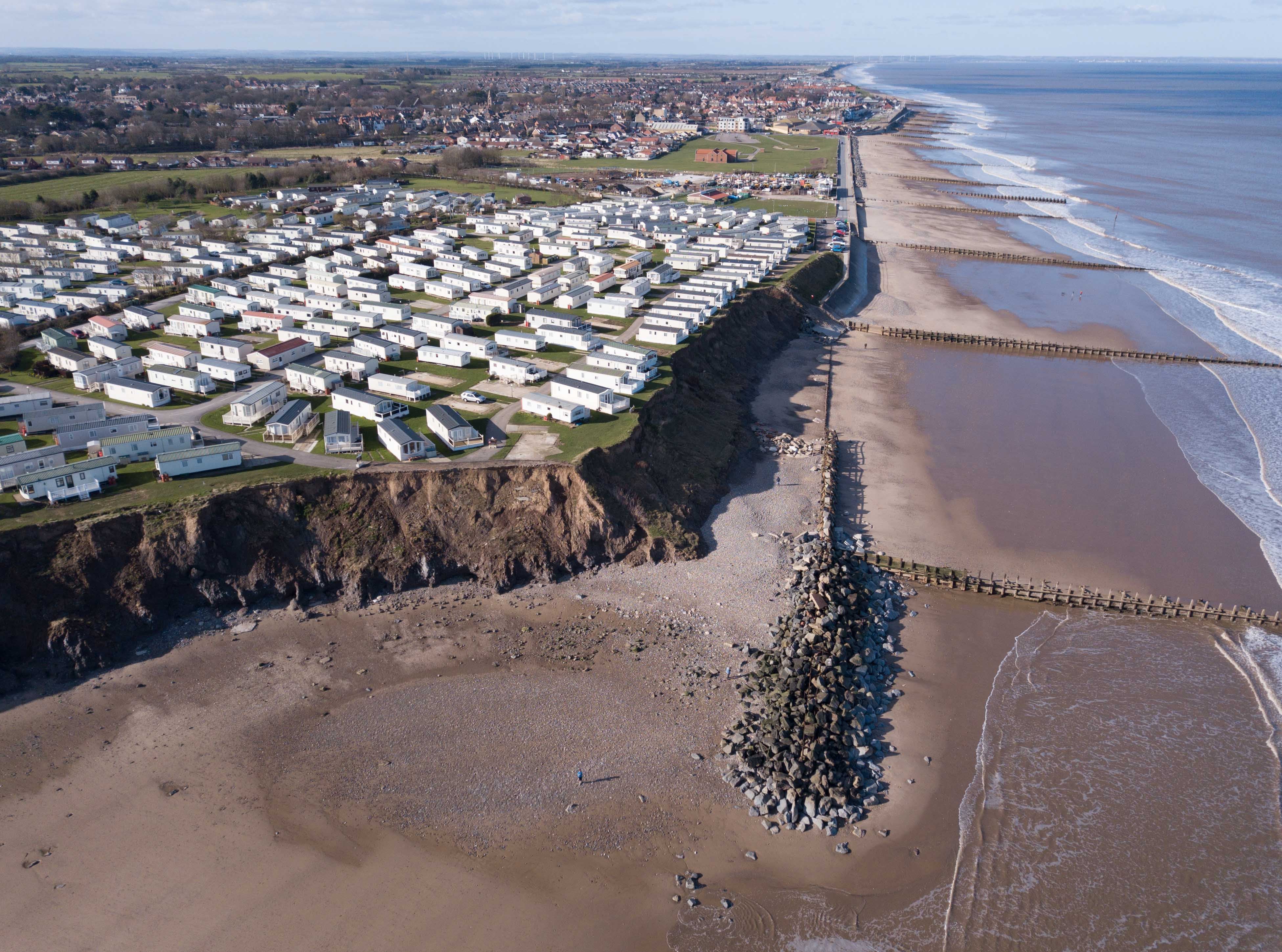
Meanwhile, TV producer Lucy Ansbro said she had spent £500,000 protecting her home from coastal erosion in Thorpeness, Suffolk.
The 54-year-old said her neighbour’s mansion, once worth £2 million, was demolished in October 2022 as receding cliffs made it unsafe.
“Owners need to know how quickly change can happen if you live on vulnerable parts of the coast,” she said.
“Surveys and solicitors’ checks don’t include erosion but I was aware there was a threat of erosion when I bought this house in 2009.
“However, I never dreamed it would be this severe.
“No research I did suggested it would ever happen this quickly.
“The worst-case scenario predicted losing five metres to the sea within 50 years but, in fact, I lost five metres in 2020 alone.
“Houses behind mine, less than 50m from the clifftop, have recently sold for close to £1 million.
“Nobody is taking this seriously or accepting that communities are at serious risk.”
To see One Home’s map, click here.



Join our commenting forum
Join thought-provoking conversations, follow other Independent readers and see their replies
4Comments